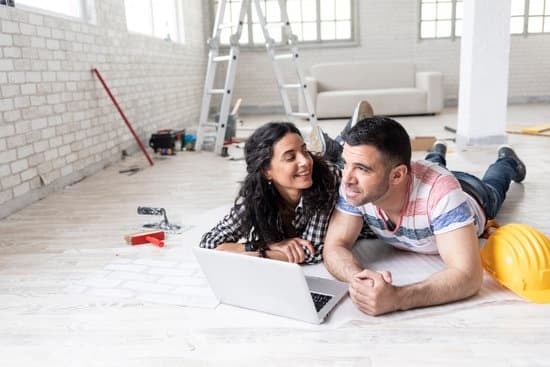How do home improvements affect value? Home improvements are a crucial aspect of increasing the value of a property. Whether it’s enhancing curb appeal, making interior upgrades, improving energy efficiency, or conducting maintenance and repairs, each improvement has the potential to positively impact the overall value of a home.
It’s essential for homeowners to understand the key factors involved in making these improvements and how they can maximize their return on investment. In this article, we will delve into the various aspects of home improvements and their influence on property value.
One of the key factors to consider before making home improvements is understanding the potential return on investment for different projects. Not all improvements yield the same increase in property value, so homeowners need to carefully evaluate which projects will provide the most significant impact.
Additionally, the impact of curb appeal should not be underestimated. The exterior appearance of a property is often what makes the first impression on potential buyers or appraisers, and therefore plays a significant role in determining property value.
Interior upgrades also play a critical role in adding value to a home. Whether it’s kitchen remodels, bathroom renovations, or adding extra square footage, certain interior upgrades can significantly increase the desirability and marketability of a property. Furthermore, energy efficiency upgrades have become increasingly important in today’s real estate market.
Buyers are looking for homes that are not only aesthetically pleasing but also cost-effective to maintain. By improving energy efficiency through features like insulation, energy-efficient windows, and sustainable materials, homeowners can enhance their property’s overall value.
Key Factors to Consider Before Making Home Improvements
When considering home improvements, it is crucial to examine various key factors before diving into any renovation project. These factors can help homeowners make informed decisions about which home improvements will have the greatest impact on their property value.
Financial Considerations
One of the most important factors to consider before making home improvements is the financial aspect. Homeowners should carefully assess their budget and determine how much they are willing to invest in the renovations. It is also essential to weigh the cost of the improvements against the potential increase in property value. Understanding the potential return on investment (ROI) for each project can help homeowners prioritize which improvements to make.
Market Trends and Buyer Preferences
Another key consideration is staying informed about current market trends and buyer preferences in real estate. By understanding what features and amenities are in demand, homeowners can make strategic improvements that will appeal to potential buyers if they decide to sell their home in the future. This may involve researching popular design styles, sought-after amenities, and preferred home features in their local market.
Long-Term Maintenance and Durability
Before embarking on any home improvement project, homeowners should also take into account the long-term maintenance and durability of their chosen upgrades. Opting for high-quality materials and durable fixtures can not only enhance a home’s value but also reduce ongoing maintenance costs over time. Additionally, considering the longevity of certain improvements can help homeowners make sustainable choices that will benefit them in the long run.
By carefully considering these key factors before making home improvements, homeowners can make strategic decisions that effectively enhance their property value while aligning with their budget and long-term goals. Understanding these considerations lays a solid foundation for successful home improvement projects that yield significant returns on investment.
Understanding the Return on Investment for Different Home Improvement Projects
When it comes to home improvements, understanding the return on investment (ROI) for different projects is crucial for homeowners. Making smart choices about which improvements to invest in can significantly impact the value of a property. Here are some key factors to consider when evaluating the ROI of different home improvement projects:
- Cost of the Project: Before embarking on any home improvement project, it’s important to carefully consider the cost involved. Homeowners should weigh the initial investment against the potential increase in property value.
- Market Trends: Researching current market trends and preferences can help homeowners make informed decisions about which home improvement projects are likely to yield a high ROI. For example, energy-efficient upgrades such as solar panels or high-efficiency windows are increasingly sought after by buyers and can positively impact property value.
- Quality of Workmanship: The quality of workmanship and materials used in a home improvement project can greatly influence its long-term impact on property value. It’s important for homeowners to prioritize high-quality renovations that will stand the test of time.
Additionally, homeowners should consider consulting with real estate professionals or appraisers who can provide valuable insights into how specific home improvements can affect property value in their local market. By carefully evaluating the potential ROI of different projects, homeowners can make strategic decisions that enhance both their living space and their long-term financial investment.
Ultimately, understanding the return on investment for different home improvement projects is essential for homeowners who want to maximize their property’s value. By considering factors such as cost, market trends, and workmanship quality, individuals can make informed decisions about which renovations will have the most significant impact on their home’s overall worth. With careful planning and research, homeowners can ensure that their investments in home improvements result in a substantial increase in property value over time.
The Impact of Curb Appeal on Property Value
The exterior of a home is the first thing potential buyers see, so it’s no surprise that curb appeal has a significant impact on property value. Curb appeal refers to the attractiveness of a property from the street, and can greatly influence a buyer’s first impression and their willingness to pay top dollar for a home.
Studies have shown that homes with well-maintained exteriors and aesthetically pleasing landscaping can sell for higher prices than those with neglected curb appeal.
One key factor in creating curb appeal is landscaping. Well-kept lawns, beautifully designed gardens, and strategically placed trees and shrubs can all contribute to a positive first impression. In fact, according to a study by the National Association of Realtors, homeowners who invest in landscaping upgrades can expect to recover 100% to 200% of their investment when they sell their home.
In addition to landscaping, other exterior improvements such as fresh paint, updated roofing, stylish front doors, and modern garage doors also play a vital role in increasing curb appeal and consequently home value. According to Remodeling Magazine’s Cost vs. Value report, certain exterior improvements like replacing the front door or adding manufactured stone veneer can have a high return on investment when it comes to boosting property value.
| Improvement | Return on Investment |
|---|---|
| Landscaping upgrades | 100% – 200% |
| New Front Door | 90% |
| Manufactured Stone Veneer | 92% |
Interior Upgrades
When it comes to increasing the value of a home, interior upgrades play a significant role in attracting potential buyers and commanding higher prices. Here are some of the most valuable interior renovations that can impact the value of your property:
1. Kitchen Remodel: Renovating the kitchen is often considered one of the best ways to add value to a home. This can include updating countertops, cabinets, appliances, and adding modern features such as an island or a pantry.
2. Bathroom Renovation: Upgrading bathrooms with new fixtures, tiling, and vanities can greatly enhance the overall appeal of a home. Adding a second bathroom to a one-bathroom house can also significantly increase its value.
3. Flooring Replacement: Installing new flooring such as hardwood, laminate, or tile can give a fresh and updated look to a home. It’s important to consider durable and low-maintenance options that appeal to potential buyers.
4. Attic Conversion or Basement Finishing: Converting an unfinished attic into a bedroom or finishing a basement to create additional living space can add considerable value to a home by increasing its square footage.
5. Energy-Efficient Upgrades: Installing energy-efficient windows, doors, and insulation not only improves the comfort of the home but also reduces energy costs for future homeowners.
By focusing on these interior upgrades, homeowners can make strategic investments that have the potential to increase their property’s overall value and appeal on the real estate market. It’s essential to carefully evaluate which renovations are most suitable for your home and align with current market trends in order to maximize your return on investment.
The Influence of Energy Efficiency Upgrades on Home Value
Energy efficiency upgrades can have a significant impact on the value of a home. When homeowners invest in improving the energy efficiency of their property, they not only reduce their utility bills but also increase the overall value of their home. According to recent studies, energy-efficient homes tend to sell for a higher price and spend less time on the market compared to properties with lower efficiency ratings.
One of the key ways in which energy efficiency upgrades affect home value is by attracting environmentally conscious buyers. With growing awareness about the impact of carbon emissions on the environment, many homebuyers prioritize energy-efficient features when searching for a new home. This means that homes with solar panels, energy-efficient appliances, and proper insulation are more attractive to potential buyers, leading to an increase in property value.
In addition to appealing to eco-conscious buyers, energy-efficient homes also offer long-term cost savings for homeowners. By reducing energy consumption through upgrades such as installing double-paned windows or upgrading HVAC systems, homeowners can enjoy lower utility bills and increased comfort. This financial benefit adds to the overall appeal of the property, further contributing to its perceived value in the real estate market.
| Energy Efficiency Upgrades | Effect on Home Value |
|---|---|
| Solar Panels | Can increase property value by an average of $15,000-$20,000 |
| Energy-Efficient Appliances | Has a potential return on investment of up to 3-5% |
| Proper Insulation | Can result in an ROI of up to 95% |
The Role of Maintenance and Repairs in Preserving Property Value
When it comes to preserving property value, the role of maintenance and repairs cannot be overstated. These tasks may not seem as glamorous as a full-scale renovation, but they are vital in maintaining the overall condition of a home. Neglecting regular maintenance can lead to deterioration and diminish the value of a property over time.
Preventative Maintenance
One key aspect of preserving property value is to stay ahead of potential issues through preventative maintenance. This includes tasks such as regular inspections of roofing, plumbing, and HVAC systems, as well as addressing any minor repairs before they escalate into major problems. By taking a proactive approach to maintenance, homeowners can prevent larger issues from arising and ensure that their property retains its value.
Repairs and Upkeep
Beyond preventative maintenance, staying on top of necessary repairs and upkeep is essential in preserving property value. This includes addressing any structural issues, fixing leaks or water damage, and maintaining the functionality and appearance of the home. Whether it’s repainting exterior surfaces, replacing worn-out flooring, or updating outdated fixtures, these small repairs can make a big difference in maintaining the overall appeal and value of a home.
Long-Term Impact
Consistent maintenance and timely repairs not only preserve the current value of a property but also have long-term benefits. Homes that are well-maintained are more attractive to potential buyers when it comes time to sell. Additionally, having a documented history of regular maintenance and repairs can reassure buyers about the condition of the property and may even increase its perceived value when compared to similar homes on the market.
Case Studies
In conclusion, home improvements can have a significant impact on the value of a property. Whether it’s upgrading the kitchen, adding energy-efficient features, or simply keeping up with maintenance and repairs, there are many ways to increase the value of a home through thoughtful improvements.
This article has highlighted the importance of considering key factors before undertaking home improvement projects, understanding the return on investment for different upgrades, and how curb appeal and interior renovations can affect property value.
Real-life case studies have illustrated how homeowners have successfully increased their property value through home improvements. These examples serve as inspiration for others looking to enhance their own homes. By learning from these experiences and understanding the potential for increasing property value through strategic home improvements, homeowners can make informed decisions about their own renovation projects.
In today’s competitive real estate market, it’s more important than ever for homeowners to consider how improvements will affect the overall value of their property. With careful planning and consideration of various factors outlined in this article, homeowners can make smart choices that not only improve their living space but also increase the resale value of their home.
Understanding “how do home improvements affect value” is crucial for making informed decisions that will benefit both current enjoyment of a home and future financial returns.
Frequently Asked Questions
Are Home Improvements a Good Investment?
Home improvements can be a good investment, as they can increase the value of a property and make it more attractive to potential buyers. However, the return on investment varies depending on the type of improvement and the local real estate market.

I’m thrilled to have you here as a part of the Remodeling Top community. This is where my journey as an architect and remodeling enthusiast intersects with your passion for transforming houses into dream homes.





